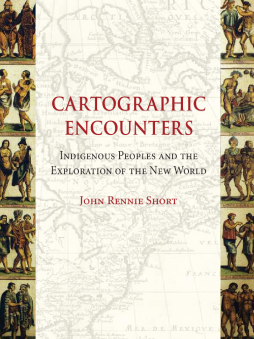
Additional Information
Book Details
Abstract
There’s no excuse for getting lost these days—satellite maps on our computers can chart our journey in detail and electronics on our car dashboards instruct us which way to turn. But there was a time when the varied landscape of North America was largely undocumented, and expeditions like that of Lewis and Clark set out to map its expanse. As John Rennie Short argues in Cartographic Encounters, that mapping of the New World was only possible due to a unique relationship between the indigenous inhabitants and the explorers.
In this vital reinterpretation of American history, Short describes how previous accounts of the mapping of the new world have largely ignored the fundamental role played by local, indigenous guides. The exchange of information that resulted from this “cartographic encounter” allowed the native Americans to draw upon their wide knowledge of the land in the hope of gaining a better position among the settlers.
This account offers a radical new understanding of Western expansion and the mapping of the land and will be essential to scholars in cartography and American history.
"John Rennie Short has trawled through many dusty travel journals and pored over his share of early maps in order to reconstruct this fascinating cultural collision. His book ranges widely, from the cartographic artefacts of pre-Columbian civilisation (maps insribed on birch bark or carved into walrus tusks) to the 19th century exploration of Australia's interior . . . consistently entertaining and even-handed."– Geographical Magazine
— Geographical Magazine"This is a book of map and voyage appropriately available to a wide readership. Forty-nine illustrations, including early maps, persons, and scenes, meld with references, bibliography, and index to educate and entertain those interested in understanding something of the cartographic history that evolved twixt natives and European colonists in the New World." — G. J. Martin, Choice
"While based on obvious deep scholarship, the book retains a flowing conversational style that is accessible to all, thereby rendering its notions even more powerful and potentially far-reaching. It is, in short, a delight to read . . . richly illustrated and attractively produced . . . Cartographic Encounters succeeds in what it has set out to accomplish, and not only positions discovery and exploration within critical historiography but awakens as well our sense of justice and long-overdue attribution." –Globe
— Globe"This short, richly illustrated book describes the historically undervalued role that natives played in providing geographical intelligence to U.S. colonizers . . . a popular, accessible introduction to an often-overlooked issue."–Journal of Interdisciplinary History
— Journal of Interdisciplinary HistoryJohn Rennie Short is a professor in the Department of Public Policy at the University of Maryland Baltimore County. He is the author of more than thirty books, including Representing the Republic, Global Dimensions, Making Space, and The World through Maps, which was named by Discover as one of the best science books of 2003.
